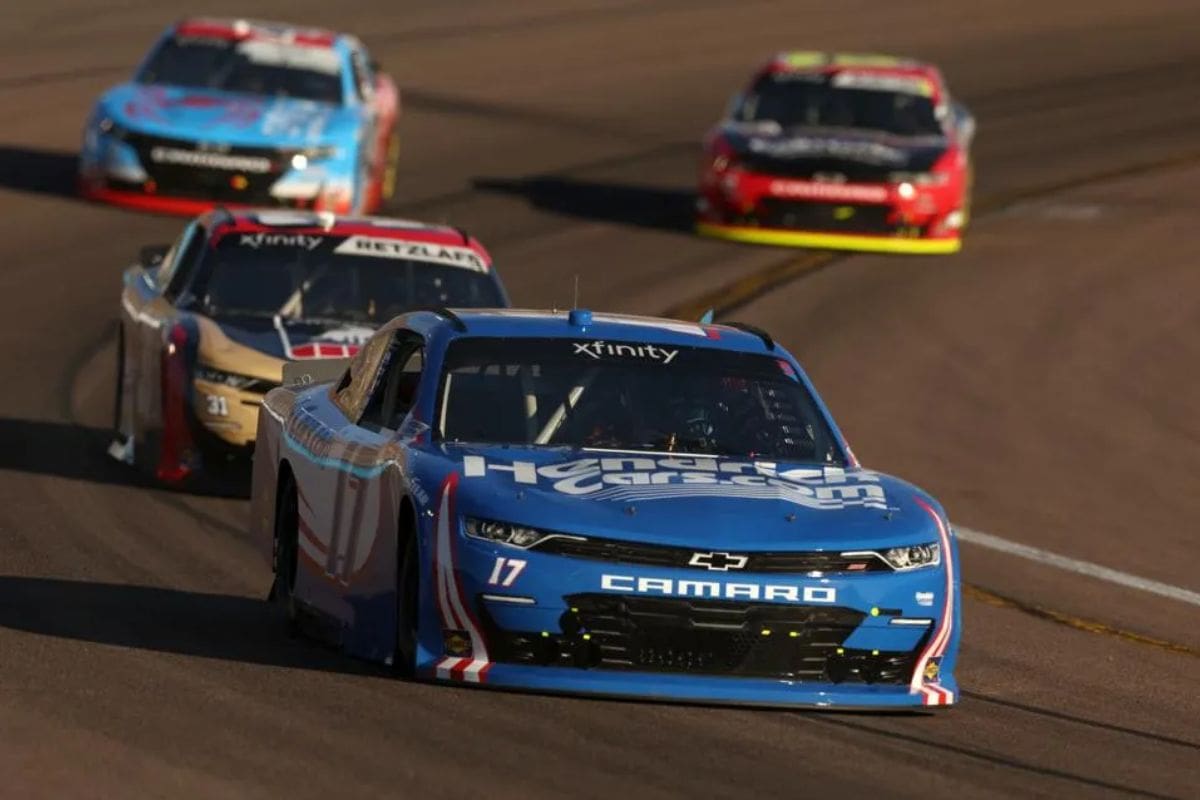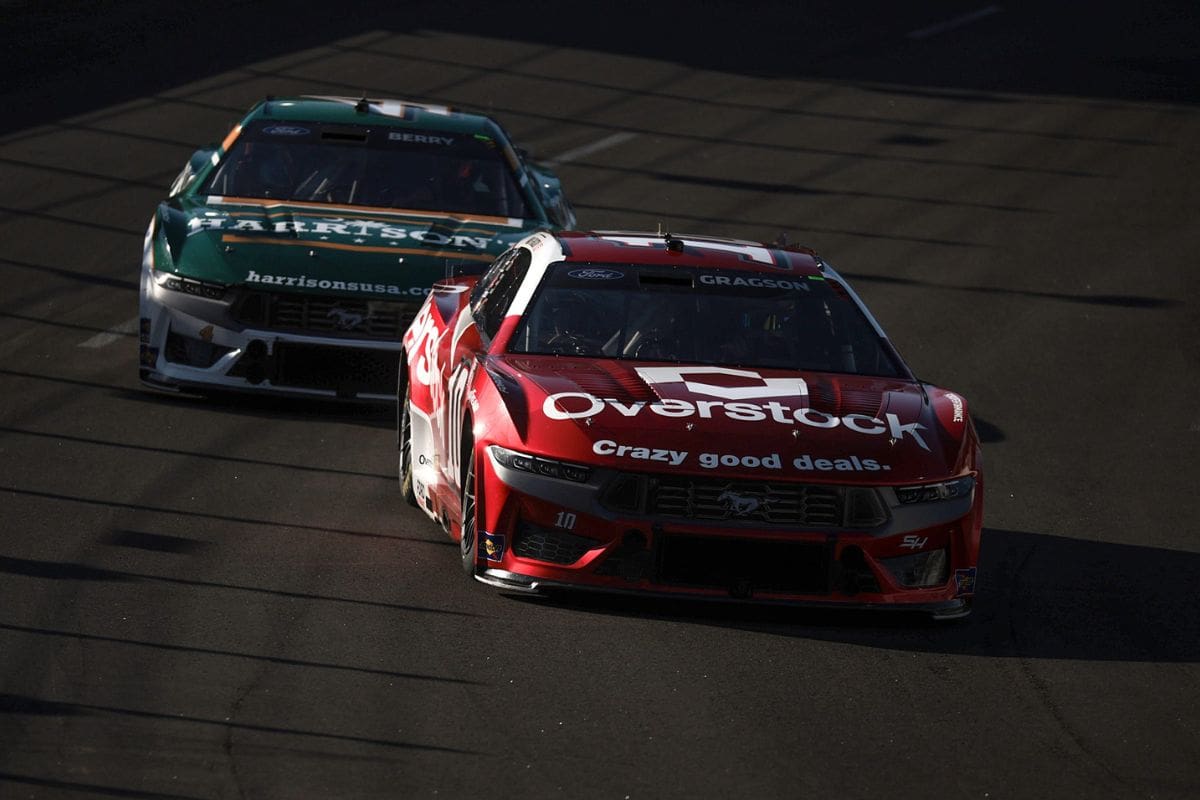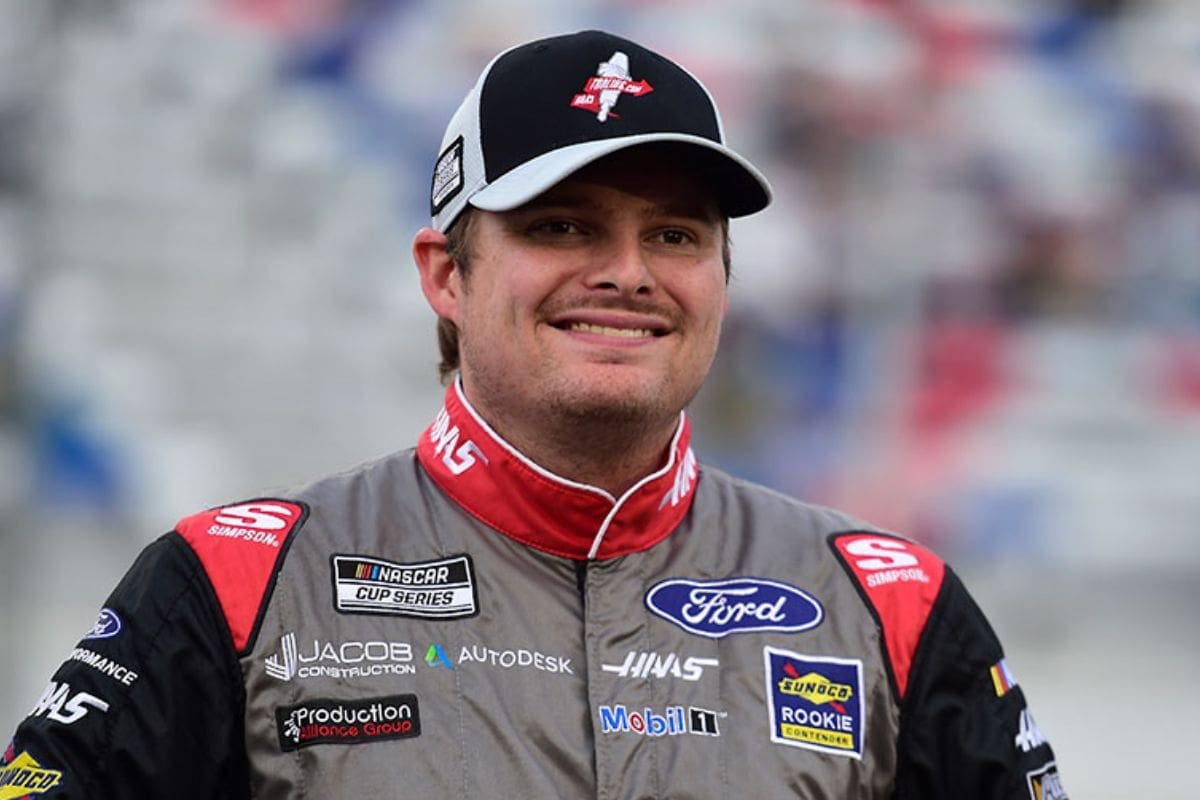Riley Herbst Uncovers SHR’s Weak Spot: Riley Herbst‘s frank remarks regarding Stewart-Haas Racing (SHR) shows a critical issue within the organization: their evident struggles on road courses, which he describes as “not where we need to be.” While SHR has maintained a degree of success on oval tracks, the pronounced deficiencies in speed and competitiveness during road racing events raise questions about the team’s general strategy and preparation. As the scrutiny mounts from both fans and analysts similarly, one must consider what specific changes are necessary for SHR to improve its playoff viability and rectify these glaring weaknesses.
Key Highlights
- Riley Herbst highlighted performance gaps within SHR, indicating the team is falling short of its competitive ambitions.
- Despite consistent results, SHR struggles to maintain speed necessary for dominating races, particularly on road courses.
- Recent road course performances have been disappointing, with no top-three finishes this season hindering playoff potential.
- Limited testing opportunities restrict tactical refinement, making driver adaptability crucial for overcoming road course challenges.
- The racing community is closely monitoring SHR’s progress, with mounting pressure to convert potential into tangible results.
NASCAR Xfinity Series Resumes at Michigan International Speedway
As the NASCAR Xfinity Series resumes at Michigan International Speedway, the anticipation builds for drivers enthusiastic to capitalize on their recent performances. After a three-week hiatus, the return to racing at this iconic oval sets the stage for considerable competition, particularly for Stewart-Haas Racing.
Riley Herbst’s recent victory at Indianapolis has positioned him as a formidable contender, and with a qualifying effort that placed him third at 171.233 mph, his momentum is palpable.
Cole Custer, another key player for Stewart-Haas, qualified fourth with a lap speed of 171.119 mph, indicating a robust performance from the team as they look to extend their success. Michigan International Speedway has proven to be a favorable venue for SHR this season, and the drivers’ ability to navigate the high-speed, sweeping turns could be critical in maintaining their competitive edge.
However, while the team’s performance on ovals has been commendable, the question looms regarding their adaptability on diverse track types. The experience gained at Michigan will not only serve as a proving ground for Herbst and Custer but also as a barometer for the organization’s comprehensive skill as they prepare for the season’s later challenges.
The upcoming race will test their skills and reveal whether SHR can utilize their recent successes into sustained performance throughout the series. The tactical decisions made today will certainly impact the path of their championship aspirations moving forward.
Stewart-Haas Racing’s Struggles on Road Courses
While Stewart-Haas Racing has demonstrated notable strength on oval tracks, their performance on road courses has raised concerns. The Xfinity Series team, recognized for its competitive capabilities, has faced significant challenges maneuvering the twists and turns of road courses this season. Despite their drivers displaying consistency, the results have not translated into podium finishes, indicating a clear area for improvement.
The recent Chicago Street Race exemplified these struggles, with Cole Custer finishing 18th and Riley Herbst in 28th. Previously, at Sonoma Raceway, their results were slightly better, with Custer finishing 9th and Herbst 13th. However, neither driver has managed to secure a top-three finish on road courses, emphasizing the team’s ongoing difficulties.
The data shows that while SHR is positioned well in points, their inability to convert that into strong finishes on road courses is alarming. As the series progresses, addressing these deficiencies will be vital for the team’s overall competitiveness.
Current Season Standings and Recent Wins
The current season has seen Stewart-Haas Racing (SHR) maintain a competitive edge in the Xfinity Series standings, with Cole Custer leading the pack and Riley Herbst positioned in fifth. Both drivers have shown commendable consistency, with Custer accumulating nine top-five finishes and sixteen top-ten finishes. Herbst, while slightly trailing, has secured four top-fives and nine top-tens.
Despite this solid performance, the team has faced challenges in clinching victories, which has raised questions about their overall pace.
Recent races, however, have marked a turning point for SHR, as both drivers ultimately broke through to secure their initial wins of the season. Custer achieved victory at the Tricky Triangle, followed closely by Herbst’s impressive win at Indianapolis Speedway, where Custer finished in a commendable second place.
These wins, albeit late in the season, highlight the potential that both drivers possess when the right conditions align.
Herbst acknowledged the team’s struggles early in the season, citing a lack of the competitive speed they exhibited toward the end of the previous year. His reflection highlights a significant aspect of their performance: while consistency has kept them in the race for points, the speed necessary for dominating races has been elusive.
“We didn’t really have the best start to the year obviously the points leader, by just being consistent. But the speed that we both were showing at the end of the last year wasn’t really there at the beginning of this year.” – Herbst
As the season progresses, addressing these speed deficiencies, particularly on road courses, will be essential for SHR if they aspire to improve their competitiveness and secure more victories in the remaining races.
Challenges on Road Courses and Playoff Preparations
Steering through the complexities of road courses has emerged as a significant challenge for Stewart-Haas Racing (SHR) this season, a sentiment echoed by Riley Herbst, who identified their road course program as a notable weakness. As the playoffs loom, this deficiency becomes increasingly concerning, particularly given the significance of road courses in the playoff landscape. Herbst straightforwardly stated, “I’d say our weakness right now is probably our road course program; it’s not where we need to be by any means.”
- Inconsistent performance on road courses hampers their playoff potential.
- Limited testing opportunities restrict their ability to refine tactics and setups.
- Driver adaptability to the unique demands of road courses is vital for success.
- Competitive strain intensifies as other teams excel in this area.
With the playoff race intensifying, the need for improvement is pressing. The onus is not just on the drivers, but also on the engineering team to innovate and improve the performance of the vehicles.
Herbst’s remarks highlight a defining moment for SHR; the consolidation of their road course strategy may determine their success in the upcoming playoff rounds. For drivers like Cole Custer, overcoming these hurdles will be vital as they prepare to shift to the Cup Series.
Cole Custer’s Move to Cup Series and Crew Chief Announcement
As Cole Custer gears up to shift back to the Cup Series, the stakes are high for both him and the newly established Haas Factory Team. With Stewart-Haas Racing announcing the cessation of operations after the 2024 season, retaining one charter under the Haas Factory Team banner presents a unique opportunity for Custer, a former Xfinity champion and Cup Series driver. His previous tenure in the Cup Series yielded a single victory and a Rookie of the Year award, setting a foundation for a promising return.
Custer’s comeback is reinforced by the appointment of Aaron Kramer as crew chief. Kramer’s extensive experience, particularly as lead race engineer for Chris Buescher, positions him well to navigate the complexities of the next-gen car. As Joe Custer, president of the Haas Factory Team, aptly noted, the modern NASCAR landscape demands an engineering-driven approach, emphasizing simulation and data analysis. Kramer’s engineering background will be crucial in harnessing these elements effectively.
“NASCAR, and the Cup Series in particular, has become very engineering-driven. Limited track time and the nuances of the NextGen car have put a premium on simulation and data, and to really maximize all that information, you need people who can apply that information to the car and work closely with the driver to fine-tune the car.” – Joe Custer
The singular focus of the Haas Factory Team, alongside Custer’s proven capabilities, creates a potentially formidable pairing. However, the question remains whether a one-driver operation can compete effectively in the Cup Series.
The combination of Custer’s racing insight and Kramer’s engineering proficiency may yield a synergistic advantage, but success will ultimately hinge on their ability to adapt swiftly to the evolving demands of the series.
News in Brief: Riley Herbst Uncovers SHR’s Weak Spot
The challenges faced by Stewart-Haas Racing, particularly in road course performance, necessitate a critical evaluation of current strategies and resources. Riley Herbst’s frank recognition of these weaknesses highlights the urgency for the team to improve competitiveness and secure better playoff positioning. Addressing these deficiencies is crucial for future success, as consistent underperformance in road racing could undermine comprehensive team objectives. A focused approach to improving road course capabilities will be vital for SH’s aspirations in the NASCAR Xfinity Series.
ALSO READ: Riley Herbst Dismisses Double Attempt Like Kyle Larson: ‘Way Out of the Window’



